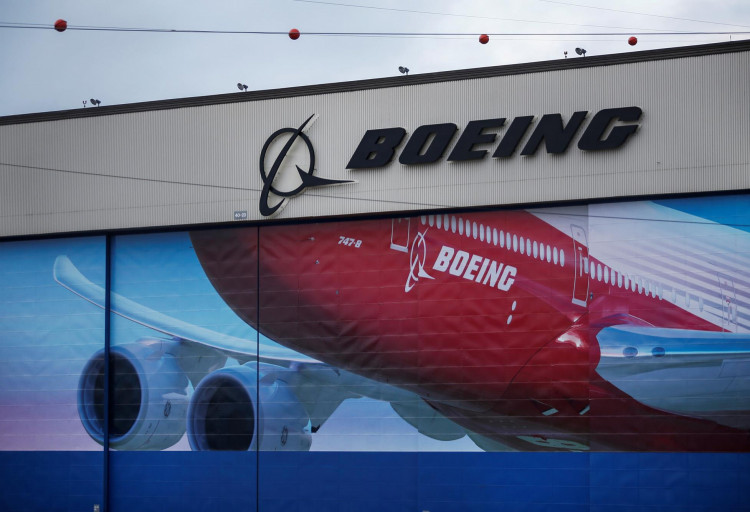Boeing's new CEO, Robert "Kelly" Ortberg, officially took the reins on Thursday, embarking on a mission to restore the reputation of the iconic U.S. aerospace manufacturer. With a track record of three decades in the industry and a reputation for being a good listener, Ortberg steps into his role at a time when Boeing faces significant operational and financial challenges.
Ortberg's first day was marked by a visit to Boeing's factory in Renton, Washington, the site of the company's best-selling yet problematic 737 Max production line. He met with employees and reviewed safety and quality plans, signaling a hands-on approach. "I can't tell you how proud and excited I am to be a member of the Boeing team," Ortberg wrote in a note to staff. "While we clearly have a lot of work to do in restoring trust, I'm confident that working together, we will return the company to be the industry leader we all expect."
Ortberg's appointment comes at a critical juncture for Boeing. The company has experienced a severe cash burn, with losses amounting to about $8 billion so far this year. Boeing's shares have plummeted by approximately 37% year-to-date. His predecessor, Dave Calhoun, announced his departure following a tumultuous period that included the 737 Max crisis, manufacturing issues, and a slew of safety concerns.
Industry analysts have expressed cautious optimism about Ortberg's leadership. "This guy has a fantastic reputation and level of experience in the industry," said Richard Aboulafia, managing director at AeroDynamic Advisory. "He has a reputation for listening and for letting people push back." This approach will be crucial as Ortberg aims to stabilize production and address persistent manufacturing flaws.
One of Ortberg's immediate challenges is addressing safety concerns. Earlier this year, a door plug blowout on a Boeing 737 Max 9 during an Alaska Airlines flight placed the company back in crisis mode. While no one was seriously injured, the incident prompted a National Transportation Safety Board (NTSB) investigation and highlighted ongoing safety issues. Boeing's top safety executive has indicated that the company is working on a design fix to prevent similar incidents in the future.
Ortberg has committed to transparency with employees, promising regular updates on progress and areas needing improvement. "I will be transparent with you every step of the way," Ortberg said in his memo. "Giving you timely updates of what I'm seeing and hearing on the ground from our teammates and our stakeholders."
In addition to the commercial jet business, Ortberg will need to address challenges in Boeing's defense unit. The company is grappling with delays on two 747s designated as the next Air Force One aircraft and issues with its Starliner capsule, which launched in early June but faces potential replacement by SpaceX for astronaut transport.
The decision to potentially launch a new aircraft looms as Boeing continues to lose ground to rival Airbus. Analysts suggest that Ortberg's first 100 days will be pivotal in shaping the company's future. "The decisions made early in his tenure will have generational impacts on the company," said Ron Epstein, aerospace analyst at Bank of America.
Ensuring a well-trained workforce is another priority for Ortberg. Boeing has hired thousands of new workers to replace experienced staff who took buyouts or were laid off during the pandemic. The International Association of Machinists and Aerospace Workers, representing approximately 30,000 Boeing factory workers in Washington state and Oregon, is seeking significant wage increases and has authorized a strike if a deal isn't reached by September.
"The principles of safety and quality should be equally important as the manufacturing rates," said Jon Holden, local president of the union. "This potential collaboration with the new CEO could be a prime opportunity for Boeing to prove its dedication to its workforce and acknowledge the exceptional manufacturing capability and capacity of skilled IAM Members on the shop floor."
Ortberg's selection follows a broader executive shakeup at Boeing. Calhoun took over in early 2020, replacing Dennis Muilenburg, who was ousted for his handling of the two fatal 737 Max crashes in 2018 and 2019. Despite relocating Boeing's headquarters to Arlington, Virginia, Ortberg plans to base himself in the Seattle area, close to the heart of Boeing's commercial jetliner production.
"In speaking with our customers and industry partners leading up to today, I can tell you that without exception, everyone wants us to succeed," Ortberg noted. "In many cases, they NEED us to succeed. This is a great foundation for us to build upon."
Restoring strong relationships with customers and suppliers is crucial for Ortberg. Boeing's recent leadership shakeup followed delays in aircraft deliveries and growing frustration among airline CEOs. Southwest Airlines, one of Boeing's largest customers, has scaled back its growth plans due to delays in receiving new jets. "We look forward to working with Kelly Ortberg in his efforts to return Boeing to its place as the leading American aerospace company," said Southwest Airlines CEO Bob Jordan. "A strong Boeing is great for Southwest Airlines and it's great for our industry."






